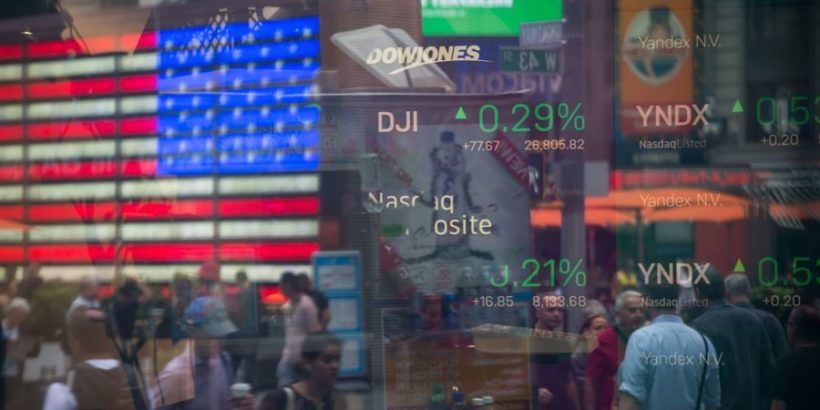Friday’s late-session plunge in U.S. stocks took out a line of defense that had held up twice earlier this week.
The S&P 500 sank 4.3% Friday, plunging through the Christmas Eve 2018 level that had halted sell-offs Wednesday and Thursday. With that support gone and signs mounting that the effects from the coronavirus will lead to a recession, chart watchers are recalibrating where the current pain may halt.
“There’s a lot of fear and anxiety,” said Randy Frederick, a vice president of trading and derivatives at Charles Schwab. “December 2018 was a severe correction that almost threw us into a bear market. I don’t see a lot of support between that level and the election low in November 2016,” around 2,139. Such a drop can happen really fast, he said.
Advertisement
U.S. stock trading volumes surged to about 60% above the average as investors weighed a quicker pace of coronavirus infections against flickers of optimism that have followed extraordinary monetary and fiscal actions meant to protect the global economy. The S&P 500 fell 15% this week in the biggest loss since 2008.
The past few weeks have seen the S&P break through key support levels, including a drop below a trend line that traced from the day the bull run began 11 years ago.
The next bulwark is 2,100, according to Evercore ISI’s Rich Ross, which marks a 50% retracement of the entire bull market. After that comes 1,800, which would imply a decline of more than 20% from Friday’s close.
“Momentum is strong to the downside,” Mr. Ross said. “There is no playbook for a pandemic and most major markets remain structurally broken and in bear markets.”
Fear is creeping in that the virus-induced slowdown will be deeper and more painful than many previously projected. It took three months for the first 100,000 coronavirus cases but only 12 days for the next 100,000. The pathogen has now killed more than 10,000 people around the world.
Restrictions on business activities and public assembly have already begun to affect several states’ revenue and costs. New York State ordered all nonessential workers to stay at home.
Economists at Goldman Sachs are warning the U.S. economy may shrink 24% on an annualized basis in the second quarter. Full-year GDP growth could contract 3.8% on an annual average basis, they said.
“Stock market investors who still have money in the market are shutting down, selling it all and taking their money out at the end of an incredible week that defies description,” said Chris Rupkey, chief financial economist for MUFG Union Bank. “And we were there when Lehman failed.”



